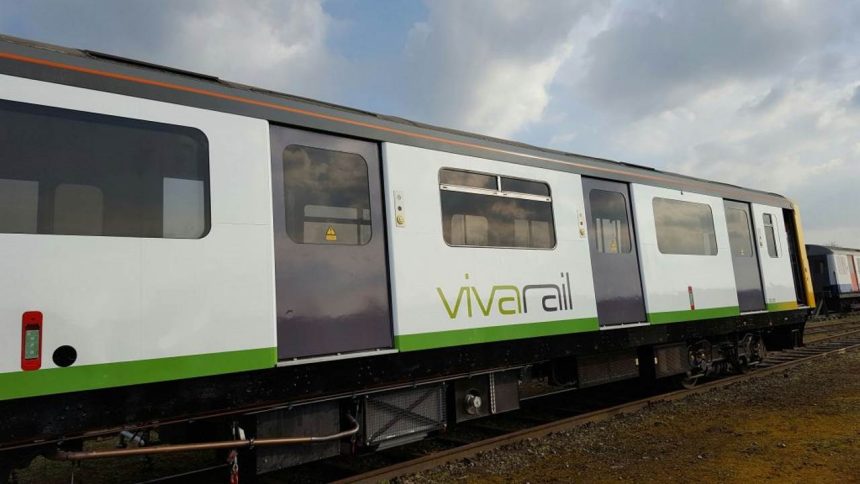VivaRail has released an update on their first production train, which is in its final build stage and is due to be approved for passenger service by the summer.
No. 230002 is nearing completion in Vivarail's main workshop. This 2 car train is the first battery operated production train in the UK.
The train is operated by 2 lithium ion batteries per carriage and has a range of 40 miles.
Battery operated trains aren't new, but what Vivarail is leading the way in is new ways to bring them into service. 230002 has 4 batteries with a capacity of 106-kilowatt hours (kWh) and requires just an 8-minute charge at the end of each journey. A 10-minute charge would boost the range to 50 miles. With technology developing, these distances will soon increase.
How does it work?
The train can be charged through Overhead Lines (OHL0), or 3rd rail. For non-electrified lines, Vivarail has developed a static battery bank as an alternative. In each case, the train is charged via a patented Automatic Charging Point. This is a simple design that allows the trains to replace diesel trains with a minimum effort.
The system is automatic, it means the train simply stops at the stop board the train automatically connects to the power source without any human intervention. The rate of charge is identified by on-board power electronics. One the charging is complete, the system shuts down before the train departs.
The charging point can draw power from the existing infrastructure – it just needs a supply of 11kV or 33kV. If the supply is not strong enough, then a static battery bank can be used instead to provide an energy reserve at charging points. The bank charges overnight at a low rate and then discharges throughout the day to power the trains as necessary – which means running costs are reduced because a minimum amount of electricity is needed during the daytime hours.
These trains look very interesting. What do you think? Tell us in the comments below 🙂
- Visit the Vivarail website
For more information


The Class 230’s DEMU’s could be ideal to operate on local-rural lines in South Wales such as the Welsh Valley services and Cardiff suburban services. Plus they could also operate on the local services in Cornwall. And perhaps use them in the West Midlands and East Midlands.
Test it running a test service between Dereham and Norwich. Kill two birds with one stone!